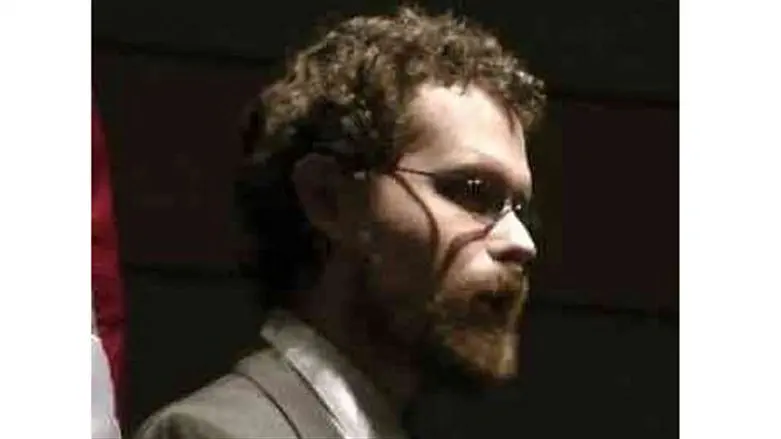
The dead in recent weeks included a 6-year-old boy and his 8-year-old brother killed in a car ramming attack in Jerusalem, a British mother and daughters gunned down on the road, a 27-year-old from Connecticut traveling to a wedding, and an Italian tourist run over on the beach.
In some countries, the soldiers fight wars, in Israel, they fight to stop a genocide.
Islamic massacres are often defended with some variation of “the occupied have the right to resist”. The Muslim occupiers keep resisting the indigenous Jewish population by killing women and children, and random foreigners whose only crime is being non-Muslim in a land that the terrorists want to reclaim for Islam.
Ever since the “throw the Jews into the sea” era, the agenda has never changed.
After the shooting of two brothers driving through the occupied village of Huwara, the Palestinian Center for Policy and Survey Research conducted a poll asking the Arab Muslim settlers if they approved of the terrorist attack. 71% of them supported the killings.
When Yom Hazikaron, Israel’s Memorial Day, arrived on Monday evening, it found a nation at war against a genocidal enemy that has half the world under siege.
In the past several weeks, five terrorists were arrested in Sweden, four in France in yet another plot to carry out an attack the Champs-Elysées, a teenager in the UK will be tried for plotting an attack at the Isle of Wight Festival and an Islamic terrorist leader in Australia was sentenced to 15 years in prison for planning to behead a non-Muslim and drape his body in the ISIS flag.
Stories like these have become so routine and overshadowed that we no longer pay any attention to them. Islamic terrorism unites us all. Its victims include America and Europe, India, China and Russia. It crosses the world from Africa to Asia and ends up on our doorstep.
With so much of the world under siege, it is a wonder that a tiny country so narrow you could walk its width has been the finger in the dike, holding out against a tide of death flooding the world.
The Jihad did not begin in Israel, but it was a warning to the world of what was to come. The prediction that we would one day all be Israelis, that Islamic terrorism would become a part of our everyday lives and we would go on while trying to ignore it, has long since come to pass.
But, as Israel held its memorial day and red poppies known as the ‘blood of the maccabees' marked the fallen, followed by Yom HaAtzamut, its independence day, there are still things, both good and bad, that we can learn from the Jewish State. The connection between the two Israeli commemorations, memorial day on Monday night and independence day on Tuesday night, is a powerful reminder that independence can only be maintained through a willingness to fight.
Surrender is not an option, but it has never been an option in a country where it would mean the mass murder, with occasional side mass rape, of the population. Israel has retreated, it has negotiated, but it has never surrendered. The terrorist attacks serve as a constant reminder of an enemy that obsessively kills women and children because its mission is total extermination.
Only 38% of the Israelis killed in Islamic terrorist attacks in 2023 were military age men. 27% were female and 22% were children. The murdered included 6-year-old and 8-year-old boys run down in the street, a 14-year-old boy on the way to synagogue and a 15-year-old British girl traveling with her family.
This is why the Israeli soldier serves. He is there to put his body on the line between Islamic terrorists and the most vulnerable and innocent children whose lives they lust to take.
Islamic terrorists don’t kill children by accident, they see it as their highest calling.
House Democrats recently protested the arrest of Sheikh Rashid Ghannouchi, of Tunisia’s Islamist Ennahda Movement, who had called for “unceasing war against the Americans”.
“There are no civilians in Israel. The population—males, females and children—are the army reserve soldiers, and thus can be killed,” Ghannouchi had also declared.
The Islamic cleric has often been described as a “moderate” by the media. ModerateMuslim clerics believe in exterminating all the women and children. What do the “extremists” believe?
Despite Israel’s turbulent politics, Yom HaZikaron, the commemoration of the fallen, briefly clarifies the stakes.
And the stakes are the children. And the world.
The Muslim world convinced the international community to pressure Israel by promising that the Jihad would stop there. “Give us Israel and it will end,” they urged. Despite all those promises, the Islamic war against civilization has spread across the world. Most of the world’s major nations and some of the minor ones have their own Islamic insurgency that plays by the same rules: alternating political demands with brutal massacres in the name of Islamic rule.
Generations of Israelis have gone to an endless war, sacrificed sons and daughters, to hold back the tide. They did it in defiance of the ignorance, hostility and pressures of the world.
They did it because they believed, they did it because they refused to die and they did it because surrendering to an enemy that gleefully butchers children was unthinkable.
Despite everything that has happened in the last generation, the world has learned little. But the Israelis have learned that peace is an illusion and that all they can do is hold the line.
When the torches were lit and loved ones wept, when the ‘blood of the maccabees’ blooms, a nation reckons again with the price that it pays for survival. Whatever myths pacifists may harbor and anti-war activists preach, there is no escape for any nation from paying that price.
Some nations have it paid by others, as the United States of America has done for so much of the globe, but in a world where evil is a reality writ in the black ink of the Koran, there can only be temporary refuges from the reckoning.
Israel still relies on a draft army. The price paid for war is a shared burden, but so is the price paid for appeasement. The fallen and their families come from all walks of life. These men and women, grandmothers, sisters, sons and nephews, have paid the world’s price in tears. They did not do it for the world, but their nation’s memorial day is nonetheless a lesson for the world.
Paying the price for freedom has long since become a cliche. Israelis do not pay the price for freedom. They pay it so that their children, their loved ones and their people are not eradicated from the earth by a brutal enemy that has no concept of mercy and worships barbarism.
The Israelis have come up against a choice that we will all have to make sooner or later. They chose not to die. The day will come when the rest of the world may face that choice as starkly as they do.
Let us hope and pray that we choose well.
Daniel Greenfield is a Shillman Journalism Fellow at the David Horowitz Freedom Center. This article previously appeared at the Center's Front Page Magazine.
